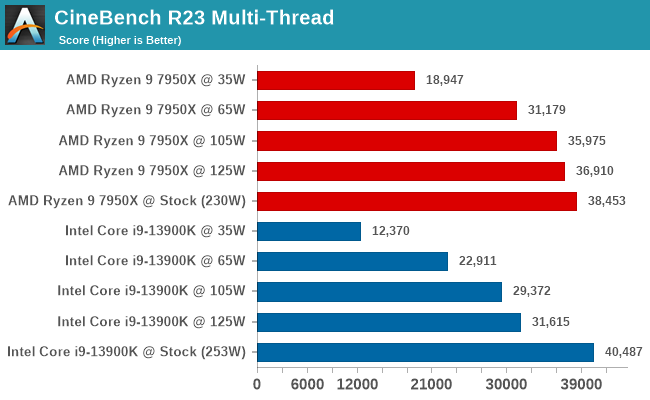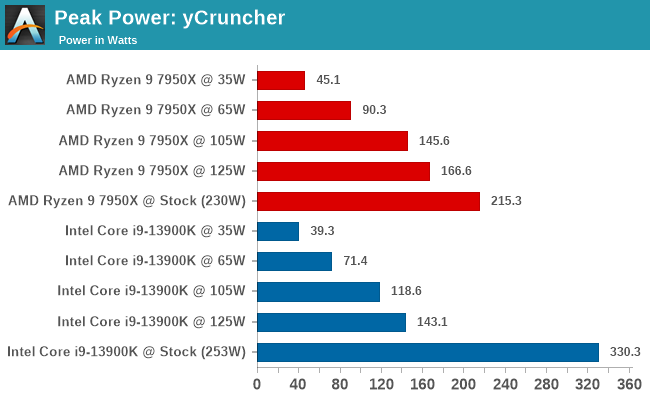Something smells...
familiar.
This is exactly why AMD correctly decreased the stock TDP for the X3D parts to a more reasonable cap. It's also why Intel held back the best binned chips for their 13900KS - to try to look better since they have nothing else to offer (for the time being). There will be a larger efficiency gap once X3D parts launch - in AMD's favor. Perhaps outside of the cherry-picked ones above where posters continue to confuse and conflate TDP, PPT, and power draw.
It sure will be nice for the X3D parts to take the performance crown while being more power efficient *AND* not requiring $350 premium DDR5 memory to get that last 1% of gains which all two of the RTX 4090 enjoyers who game at CPU-limited resolutions swear by. Then whichever flavor of CPU you prefer, they're all bound to get cheaper, right? Win/win.
The elephant in the room is of course the Ryzen 7 7700. It makes both the 7950X and the 13900K/S look like a complete and utter waste of money for gaming. And with a single CCD and a reasonable TDP it's got the best showing out of the box for efficiency.
View attachment 75202
A Ryzen 7700, 7600, 5800X3D or Intel 13600K look like compelling values for gaming and light productivity work. And unlike the 7950X or 13900K/S you're not paying $arm or $leg and you're not losing efficiency powering on more glued-together cores than you need. Whether you prefer the IF glue or the E-core glue.
If you buy a 7950X or a 13900K/S and you're spending most of your time idle or browsing... I question whether you truly needed that level of chip to begin with.







